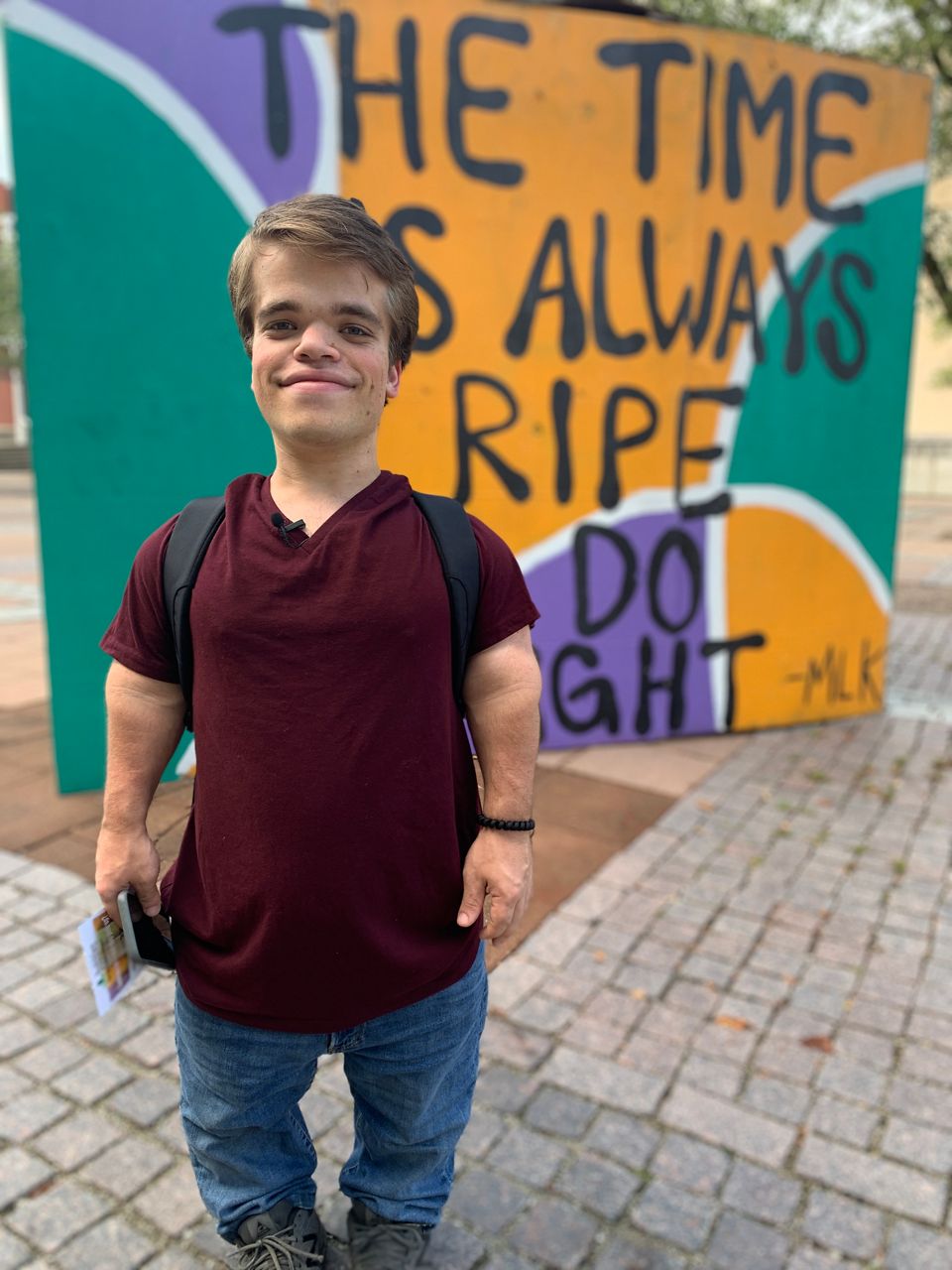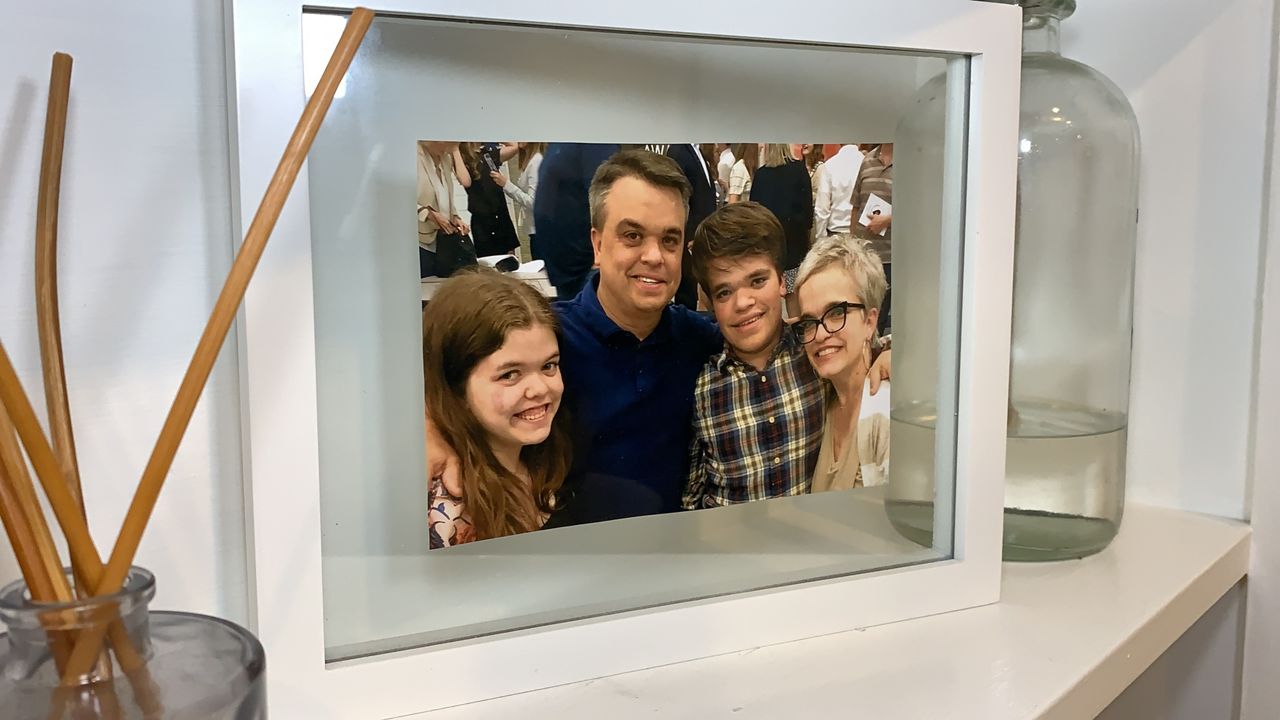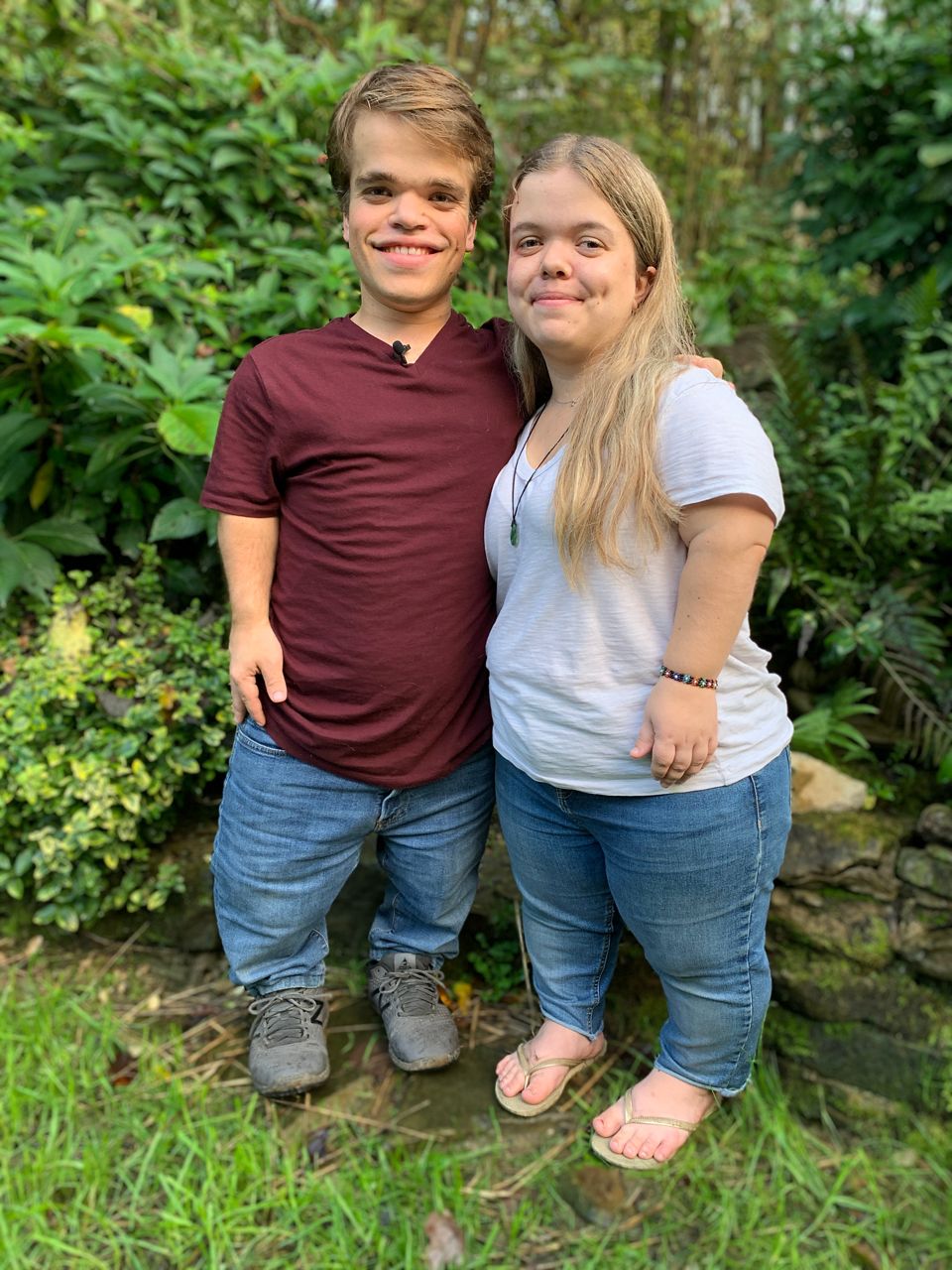COLUMBUS, Ohio — Sam McKee, 20, is an average college student. He’s a family health and human sciences major at The Ohio State University, loves coffee and hanging with his friends.
But because he was born with achondroplasia, one of the more than 300 different forms of dwarfism, he said people don't always give him the same level of respect they give to other students.
“It is easy for people to see me and treat me like I'm not a human,” said McKee. “Photos, pointing, shouting, autograph asking, derogatory terms.”
People with dwarfism are no taller than 4 feet 10 inches as an adult, but the average adult height among people with dwarfism is 4 feet.
At 4 feet four inches tall, McKee is a little person on a huge campus. He’s the only little person he’s seen on campus yet.
He said the amount of attention he gets for something he can’t control is annoying, but no longer surprising.
“You just kind of have to ignore it and not let it bother you,” said McKee.
McKee said some little people do enjoy being the center of attention and although the media mostly portrays little people in a comical way, a bigger population of little people want to go about their lives like everyone else.
“I don't like to make jokes about my height, because that just makes me feel like I am seen more as a joke to people instead of, like, an actual human,” said McKee.

What most people forget is the meaning of the second word in little person.
“I’m a human,” said McKee. “It's the golden rule. Treat others the way you want to be treated. There are so many people in many different communities and minorities all over the world that like just want that too, just to be treated as one so that we can all be successful and equal in life.'
There are a lot of misconceptions about dwarfism.
People often think little people are limited in what they can do.
"Just with a little bit of adaptation, basically we can do everything that we put our mind to, just like the average person can,” said McKee.
McKee is a self-advocate and any time he has the chance to educate people about dwarfism, he does.
He often finds himself correcting peoples’ terminology.
He said "little person" is a non-offensive term to use to describe people with dwarfism, and although a bit outdated, so is "dwarf," but that the M-word is highly offensive and should never be used to describe someone with dwarfism.
“Just call me Sam. I don't need a term to describe me,” said McKee. “You can just call me by my name and everything will be cool.”
Home Life
McKee is from Granville, Ohio. He said his experience growing up there was nice.
“Everyone in my classroom, kindergarten, kind of just grew up with me. So everybody always knew what my condition was, and like, it was just never an issue. And I never really had issues with it,” said McKee.
It was when he would go to basketball or football games at different schools that he would be reminded that he was different.
Through any hard times, McKee had his family to lean on.
Most little people have average-sized parents, but McKee’s parents are little people as well.
His dad, Thom, is a realtor. His mom, Cassie, works for Ability Matters and his sister, Sarah, 24, is a theater director and an advocate for people with all sorts of disabilities.

Sarah is 4 feet tall and said they’ve all had to learn to grow really thick skin.
“It’s really people just don’t understand dwarfism," said Sarah McKee. “And that might be where the misconceptions lie and where the jokes come in, just because they don't understand. So this is why I want to be an advocate. I want to help people understand and that’s, again, like the point of the (Dwarfism Awareness) month.”
Sarah uses her social media platform to educate people about the genetic condition as well as celebrate it.
“There's a little tiny difference in my DNA,” said Sarah McKee. “It's talked about as a barrier when it's just another human identity and like why not celebrate that. Celebrate the diversity of people and things, and it's cool, it makes you unique.”
She doesn’t want to be pitied, she wants to be treated just like everyone else.
“Yea, I'm a little person, but I'm Sarah. That's kind of what I want to get across. I'm hoping that at some point in the world, being little will be when people see me just another part of my identity and not who I am,” said Sarah McKee. “I want my personhood to be the No. 1 thing that people see.”

The brother and sister want people to realize that people with dwarfism are no different from any other person. They may just need a well-placed stool.
“People think I can't drive. I can drive. I have pedal extensions," said Sarah McKee. "(People think) that we don't have romantic lives, we do have romantic lives. That we’re just like a comedic bit, we're not."
The McKees' said they’re proud of their bodies and their height and have never wished they were average-sized.
“This is your vessel that you have for life. So like, you might as well celebrate it,” said Sarah McKee. “I've never wished that. I've only ever wished that the minds of others would be a little bit more open. And along with that, architecture would be more accessible.”
They may be small, but they’re aiming to make a big difference.
“I think that I was meant to be a little person,” said Sam McKee. “I just think there's a reason for everyone to come into this world and might as well be the difference while I can be and just try to make people smile and understand little people.”


